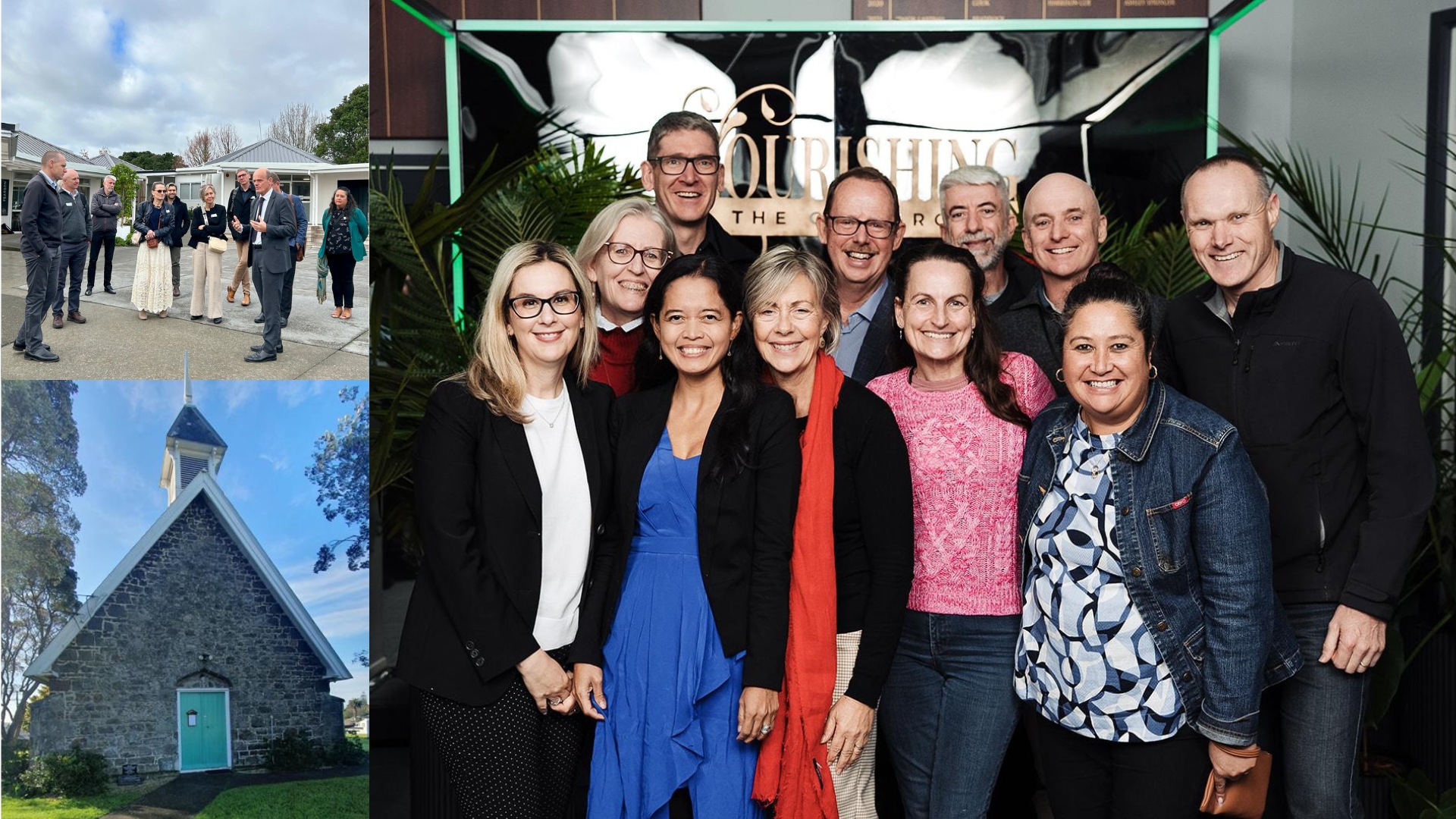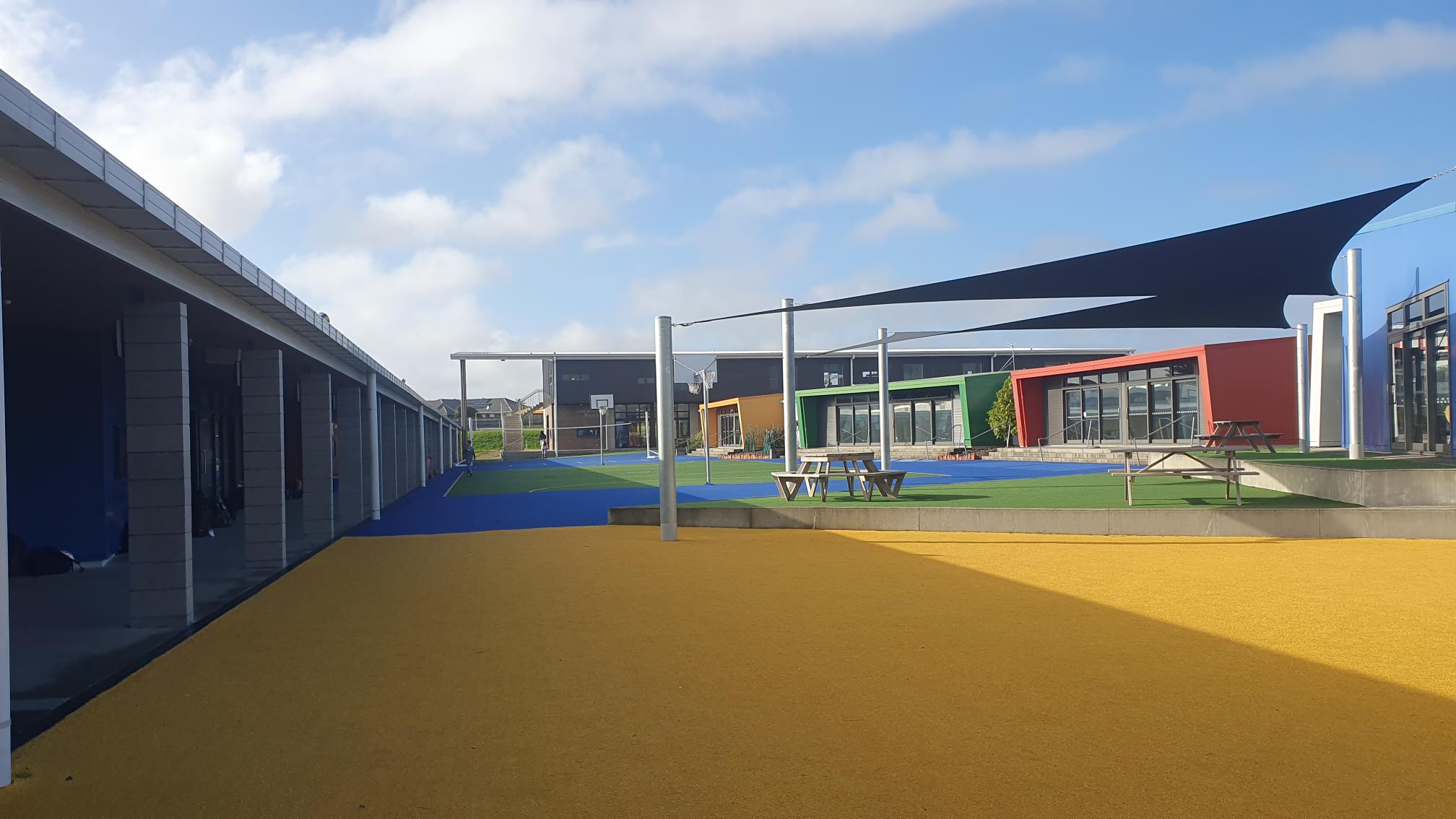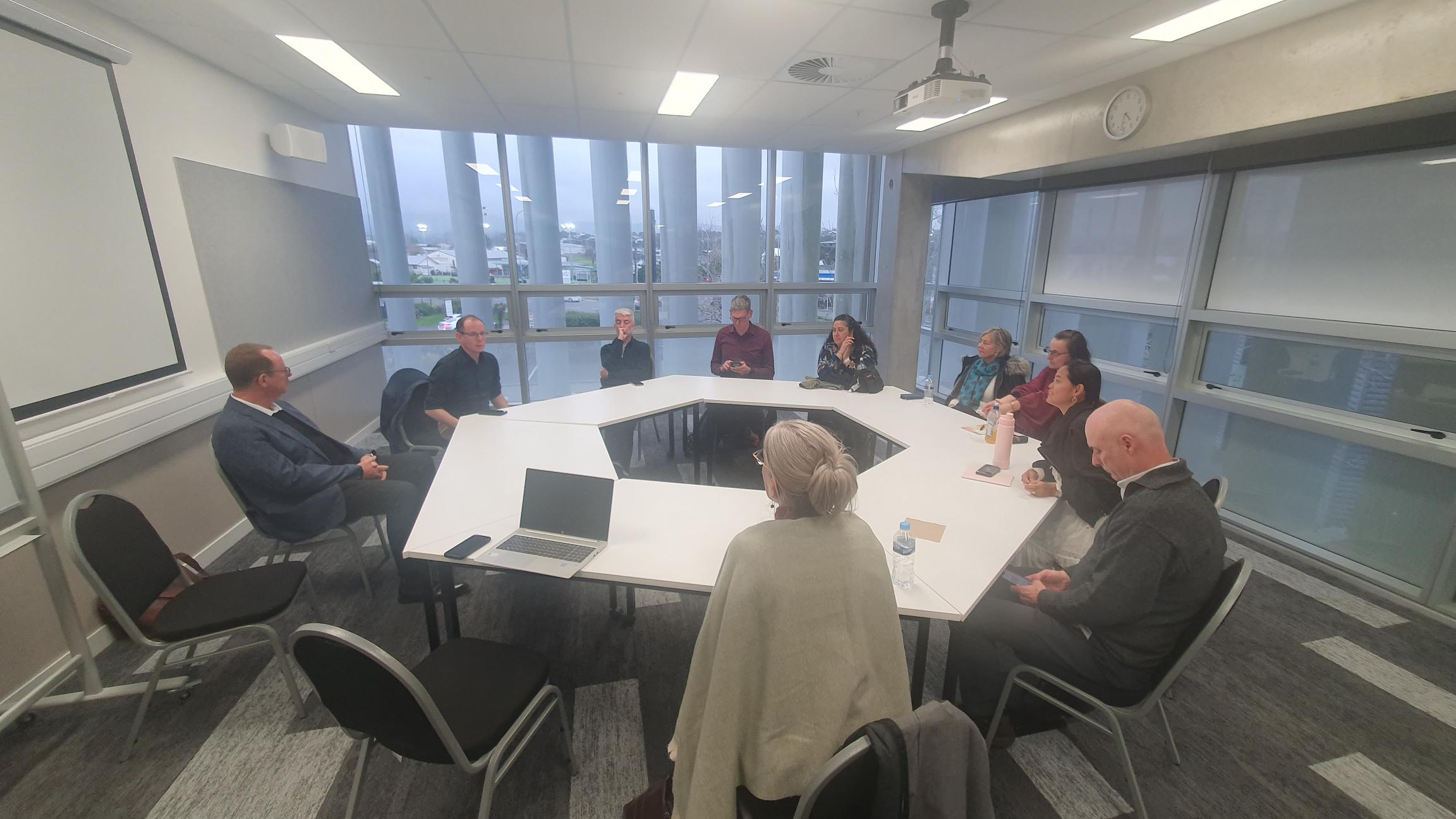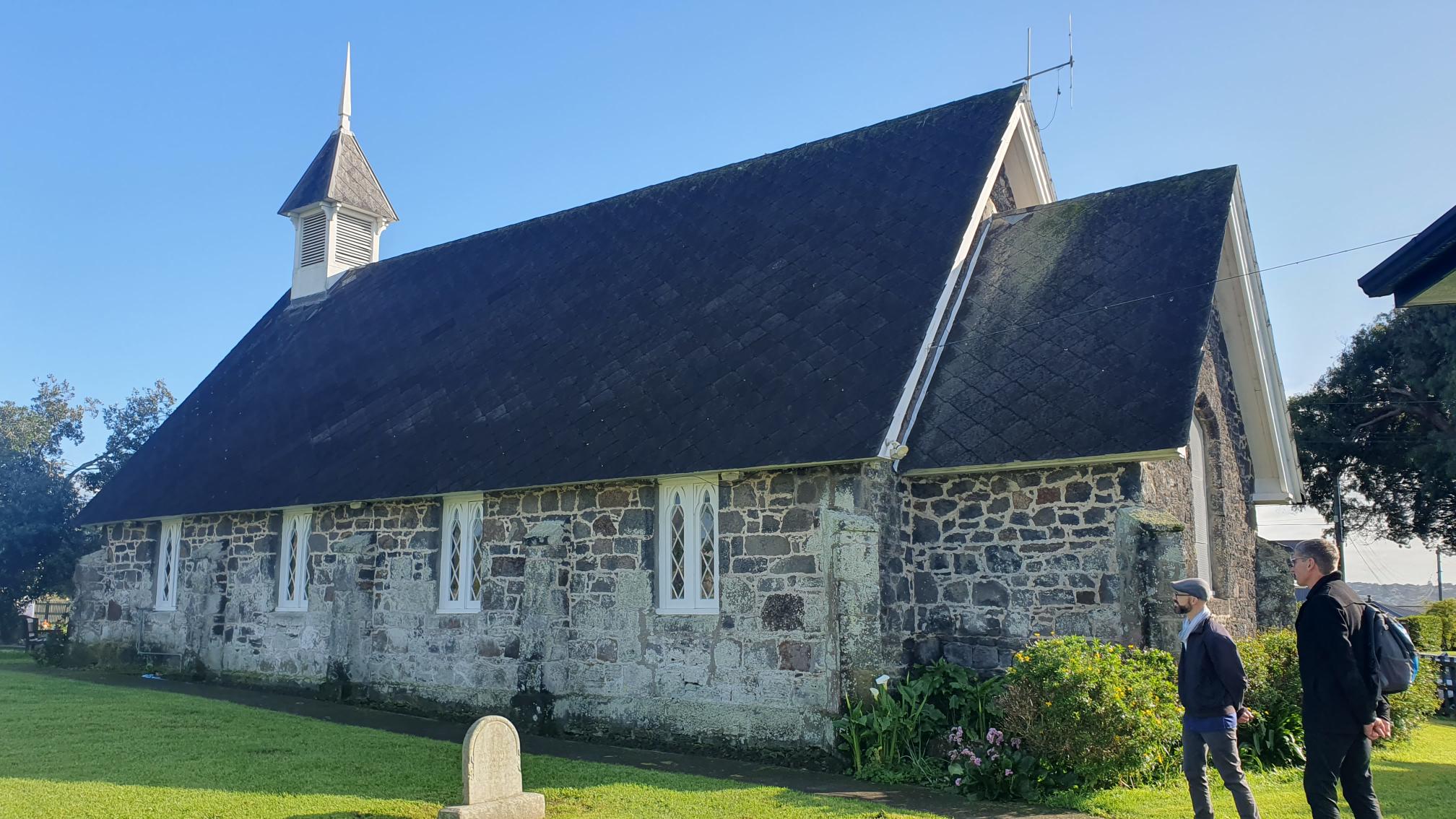04 August 2025
Lessons in flourishing, from New Zealand to Calderwood
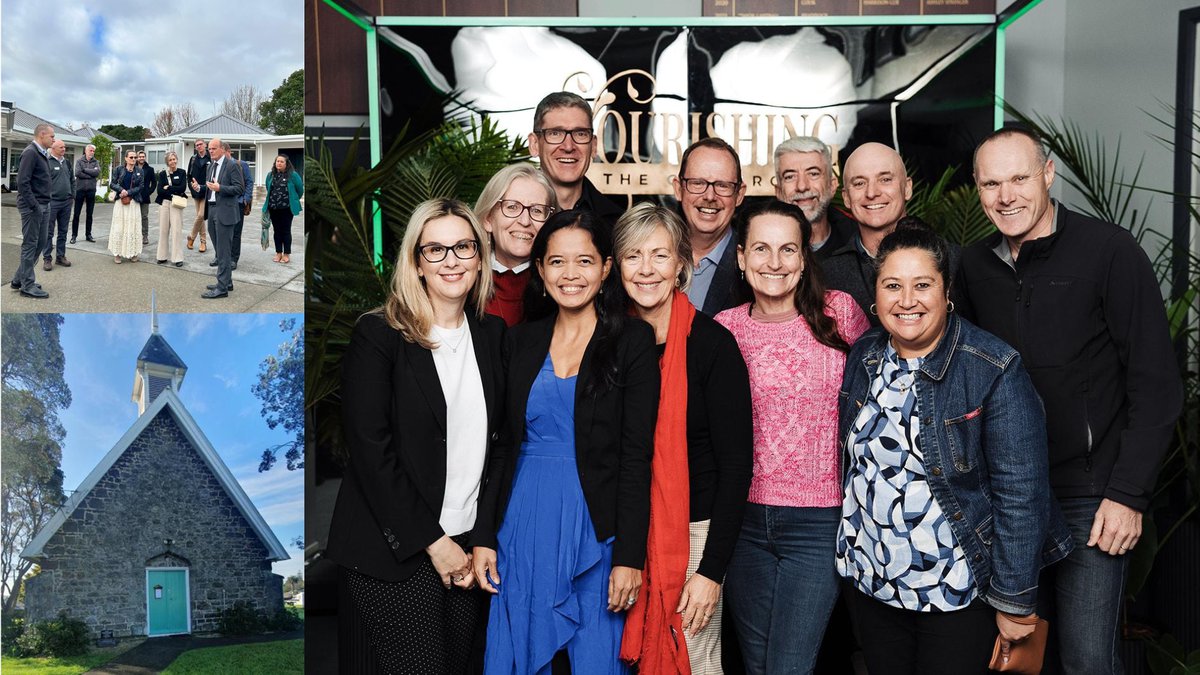
Principal Darren Hutton discusses the transformative power of professional learning and spiritual reflection in Christian education, inspired by his recent experiences in New Zealand and ongoing staff development at Calderwood.
It has long been held that teaching is both an art and a science. It has certain routines and structures that can be mastered. It draws on research from cognitive psychology, neuroscience, and pedagogy to inform practices. It involves understanding how students learn, using data to guide instruction, applying proven methods for assessment, and continuously refining techniques based on feedback and outcomes. But classrooms are full of diverse learners: sophisticated, spiritual, emotional, physical human beings, each with gifts, needs, distractions, and passions. For this reason, teaching is also an art - it requires empathy, imagination, and the ability to inspire. It’s about knowing when to pause, when to push, when to pray and how to adapt in the moment.
Professional Learning at Calderwood
Calderwood teachers are deeply convicted by their calling to Christian education and express this conviction through their aspirations to be the best teachers they can be. They understand that they will only reflect the creativity and wisdom of their God and Creator if they faithfully pursue continuous personal and professional learning. Trusting in God’s provision and resting in his sovereignty are central to the lives of every teacher, but so too is diligent, intentional learning so that they can be highly effective educators for your children. It is these deep convictions that motivate teachers to participate in a diversity of professional learning every year.
Professional Learning can take various forms. Four of the most effective forms are:
- Professional learning communities
- Ongoing job-embedded learning
- Long-term inquiry-based action-research, and
- Retreats or intensives.
In 2025, every Calderwood teacher has committed to professional learning in one or more of these formats, continuing to develop their curriculum and pedagogical expertise. Teachers are deepening their understanding of interpreting and translating the new NESA curriculum through a biblical lens, others are exploring "Cultures of Thinking" with internationally acclaimed education consultant Simon Brooks, and many are reflecting on the character of Christ as we read Dane Ortlund’s Gentle and Lowly together.

CEN Study Tour to New Zealand
In June this year, a small group of Christian school leaders were invited to attend the Christian Education National (CEN) Study Tour to New Zealand. Honoured to be invited and humbled by the wisdom, generosity and theological rigour of my tour colleagues and of those who hosted us, I could not have been more deeply impacted. Witnessing the genuine attempts of school leaders and organisations to align with the redeeming work of the gospel was inspiring. As we observed, questioned, listened, reflected, and debated, we wrestled with what it might mean to be a 'prophetic voice' in our school communities.
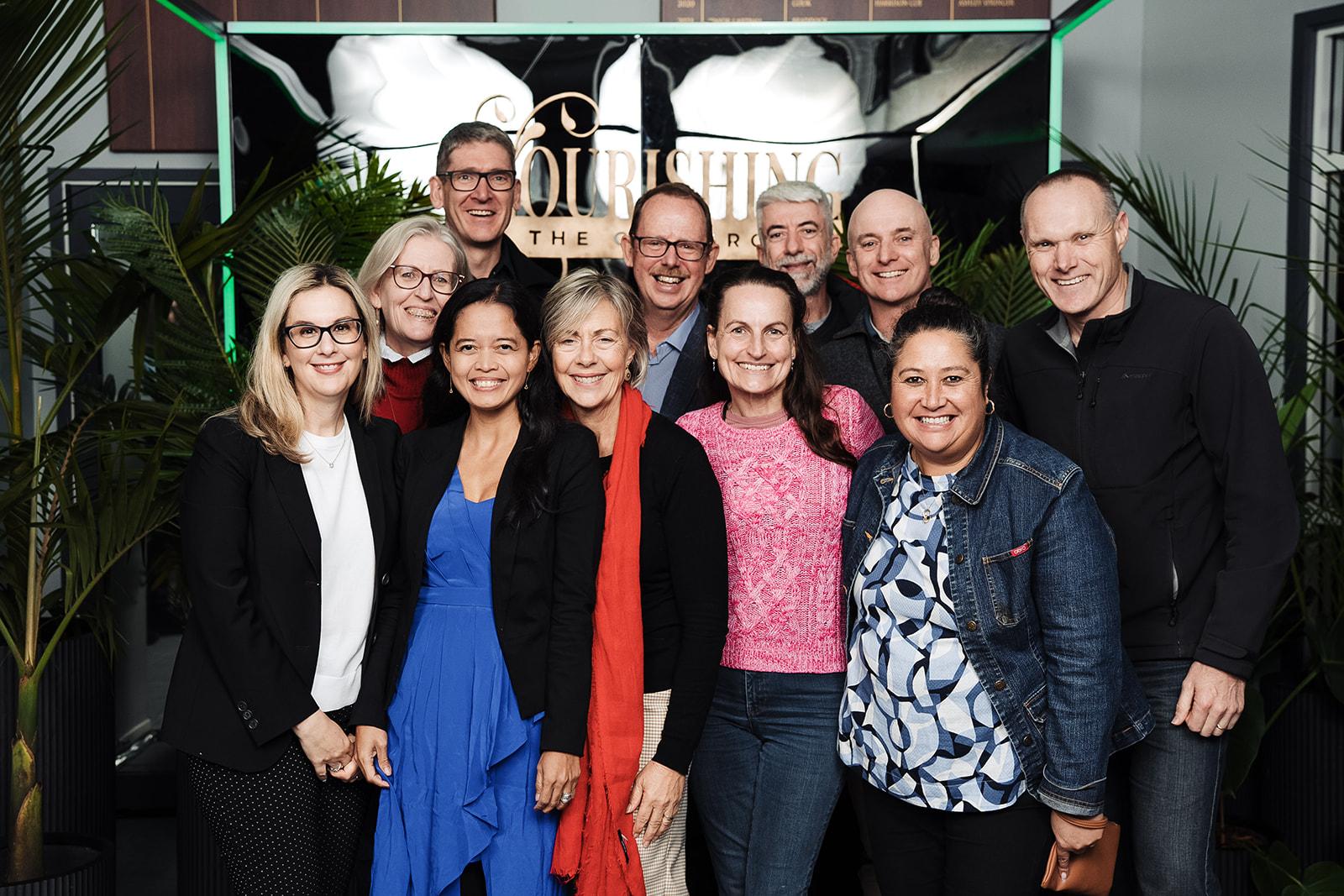
Walter Brueggemann, author and theologian, in his renowned book The Prophetic Imagination, discusses the important role of the prophets of the Bible and their responsibility to expose the errors of the dominant thinking of the time. We too are called by Christ to this same task, to undertake the honourable vocation of being faithfully present in our communities. Like the prophets of old, Brueggemann explains that 'prophetic communities, are not only to challenge the dominant way of thinking but also to offer a new vision that inspires people toward fresh and faithful ways of living…'
The CEN Study Tour stretched our thinking and inspired our imaginations to consider how we might shape our Christian school communities to be counter-cultural. When Moses led the Israelite people out of the physical land Egypt, he not only freed them from physical bondage, but invited them to re-imagine a national life aligned with God’s vision of flourishing for them. We are called to do the same. Not to simply criticise, but to critique the culture around us. And not to just imagine the personal benefits of freedom in Christ, but to reimagine cultural norms that bring freedom from what Brueggemann calls the 'royal consciousness'.
Our exploration of Christian education in New Zealand included three Christian schools, the New Zealand Association of Christian Schools National Conference, and a variety of Christian education organisations, including Laidlaw College, New Zealand’s largest Christian university.
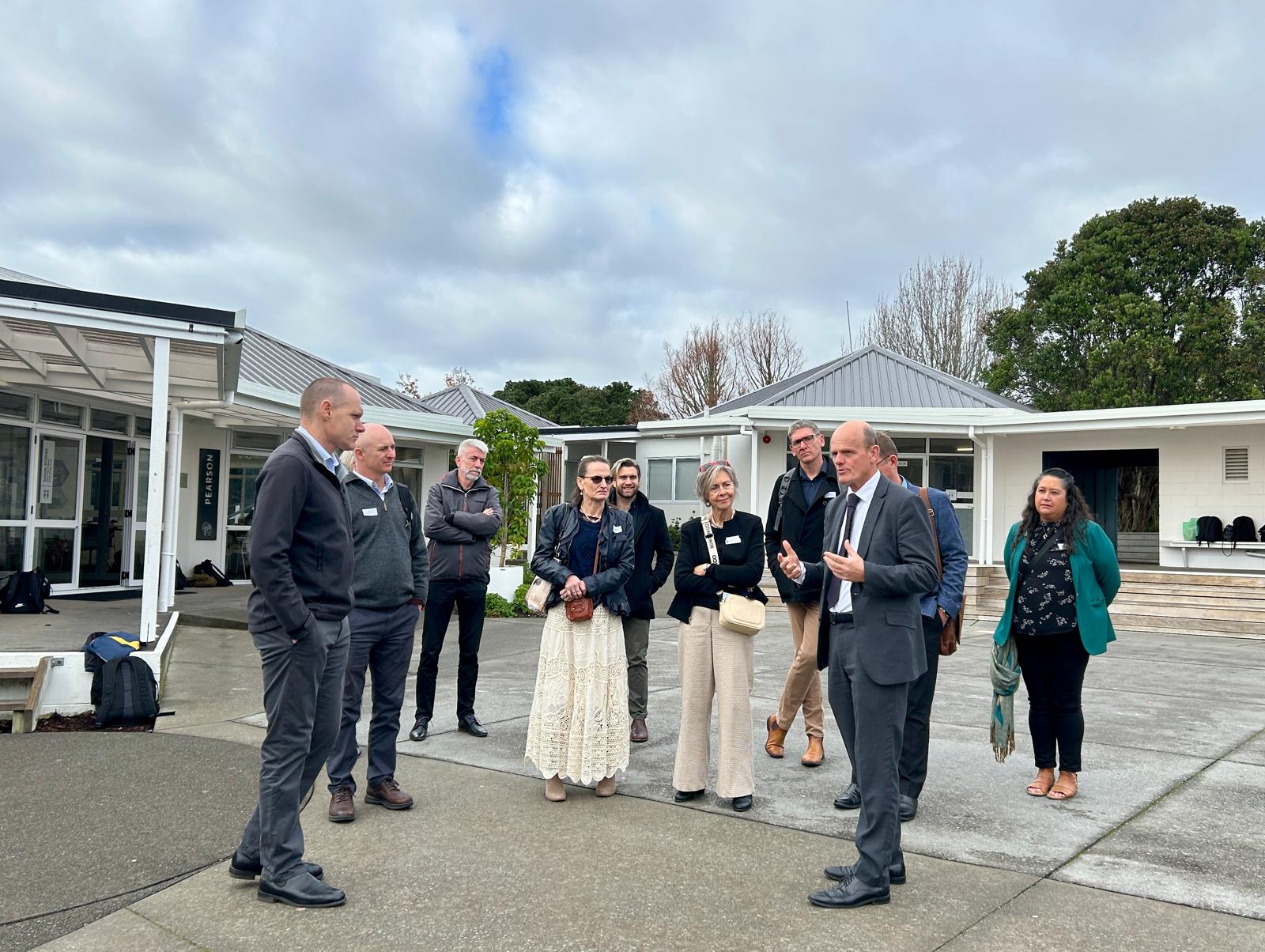
Our whirlwind tour of New Zealand concluded with an afternoon and evening with Dr Lynne Swaner, renowned international speaker, researcher and author of Flourishing Schools. Dr Swaner’s research identified five domains of flourishing evident in flourishing schools, namely:
- A clear, biblically grounded mission, or purpose, that shapes the school’s identity and direction.
- Strong, Christ-centred relationships among staff, students, families, and the wider community.
- Effective, engaging, and faith-integrated teaching and learning that supports student growth.
- Competent leadership, professional development, and adequate resources to support excellence.
- A culture that nurtures spiritual, emotional, and physical health for all members of the school community
My prayer is that as we seek to cultivate a school that flourishes, our lives and the lives of our students might bring glory to God, and that as a community we might be a prophetic voice to our region.
Mr Darren Hutton
Principal
